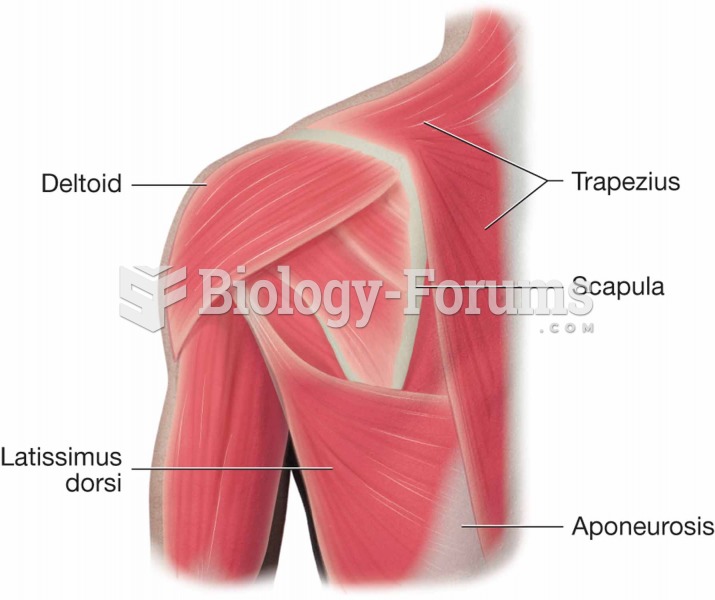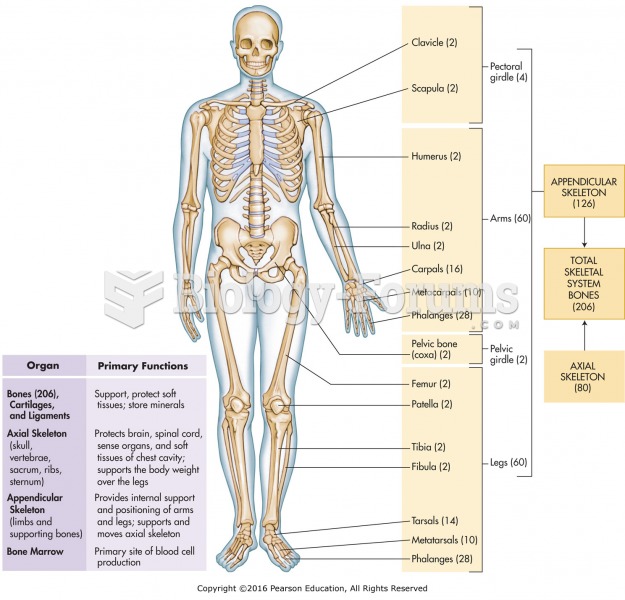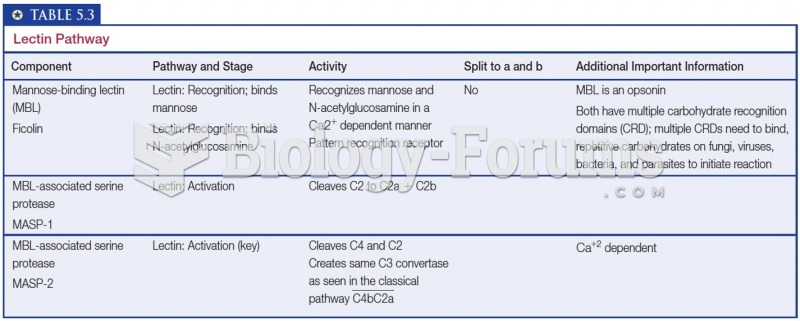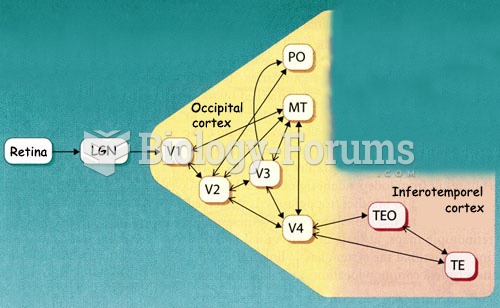|
|
|
The Romans did not use numerals to indicate fractions but instead used words to indicate parts of a whole.
The top 10 most important tips that will help you grow old gracefully include (1) quit smoking, (2) keep your weight down, (3) take supplements, (4) skip a meal each day or fast 1 day per week, (5) get a pet, (6) get medical help for chronic pain, (7) walk regularly, (8) reduce arguments, (9) put live plants in your living space, and (10) do some weight training.
Green tea is able to stop the scent of garlic or onion from causing bad breath.
In 1885, the Lloyd Manufacturing Company of Albany, New York, promoted and sold "Cocaine Toothache Drops" at 15 cents per bottle! In 1914, the Harrison Narcotic Act brought the sale and distribution of this drug under federal control.
Between 1999 and 2012, American adults with high total cholesterol decreased from 18.3% to 12.9%







